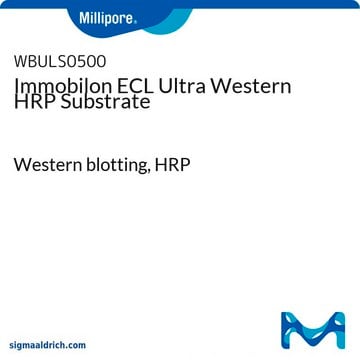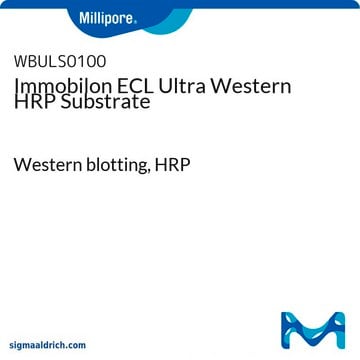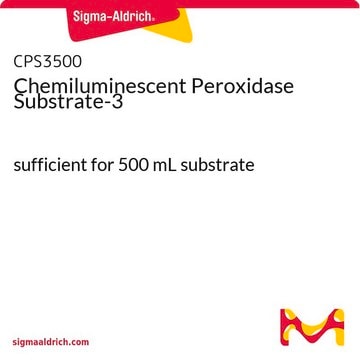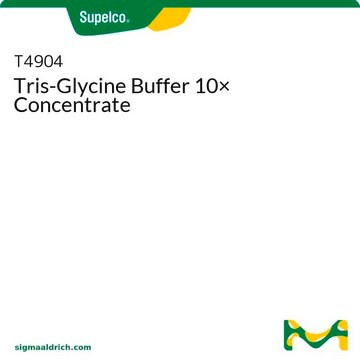Recommended Products
Application
One Component Chemiluminescent Membrane / Blotting Peroxidase Substrate is luminol-based and can detect horseradish peroxidase at high sensitivity levels (low picogram to femtogram). It provides superior sensitivity and convenience compared to competitor products. The substrate is supplied as one component. It requires no mixing and is ready to use, thus eliminating mixing errors. CPSOC substrate may be used for immunoblots, western blots, dot blots and any blotting application utilizing horseradish peroxidase (HRP)-conjugates. The substrate can be used with various blocking buffers and on nitrocellulose or PVDF membranes. Such blots will exhibit low backgrounds. Detection and analysis may be done by CCD imaging systems or x-ray film.
Storage Class Code
12 - Non Combustible Liquids
WGK
WGK 2
Flash Point(F)
Not applicable
Flash Point(C)
Not applicable
Certificates of Analysis (COA)
Search for Certificates of Analysis (COA) by entering the products Lot/Batch Number. Lot and Batch Numbers can be found on a product’s label following the words ‘Lot’ or ‘Batch’.
Already Own This Product?
Find documentation for the products that you have recently purchased in the Document Library.
Customers Also Viewed
Bin Liu et al.
FASEB journal : official publication of the Federation of American Societies for Experimental Biology, 37(7), e22974-e22974 (2023-05-30)
Given the important role of m6A, the most common and reversible mRNA modification, in the pathogenesis of ischemic stroke, this study investigates the mechanisms of m6A methyltransferase METTL3 in neuronal damage in ischemic stroke. In silico analysis was used to
Bo Dai et al.
Lab on a chip, 21(1), 143-153 (2020-11-14)
Microfluidics drives technological advancement in point-of-care (POC) bioanalytical diagnostics towards portability, fast response and low cost. In most microfluidic bioanalytical applications, flowing antigen/antibody reacts with immobilized antibody/antigen at a constant flux; it is difficult to reach a compromise to simultaneously
Wupu Osimanjiang et al.
Journal of neurotrauma, 37(18), 1954-1962 (2020-04-23)
Glycosylation is a fundamental cellular process that has a dramatic impact on the functionality of glycoconjugates such as proteins or lipids and mediates many different biological interactions including cell migration, cellular signaling, and synaptic interactions in the nervous system. In
Our team of scientists has experience in all areas of research including Life Science, Material Science, Chemical Synthesis, Chromatography, Analytical and many others.
Contact Technical Service
